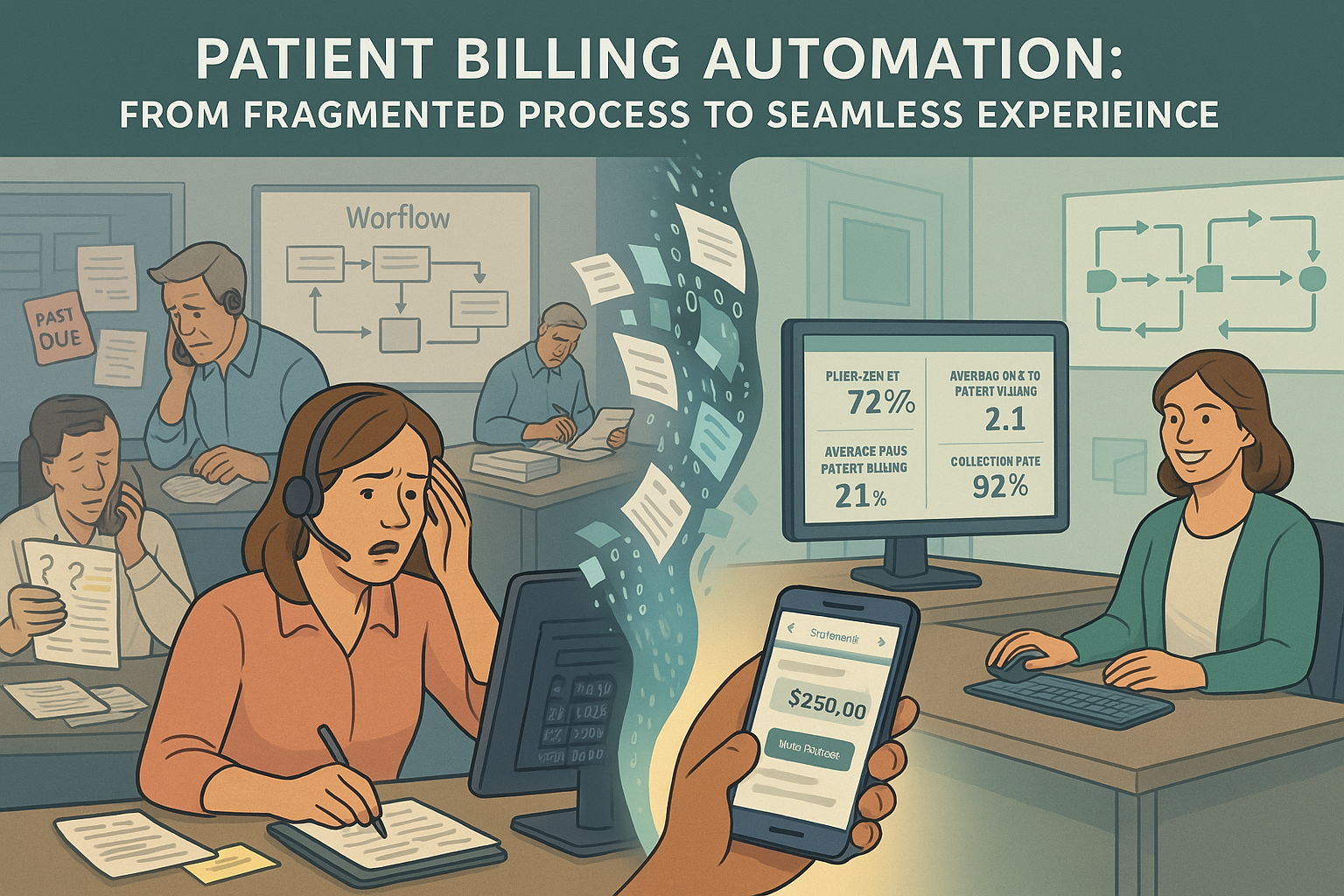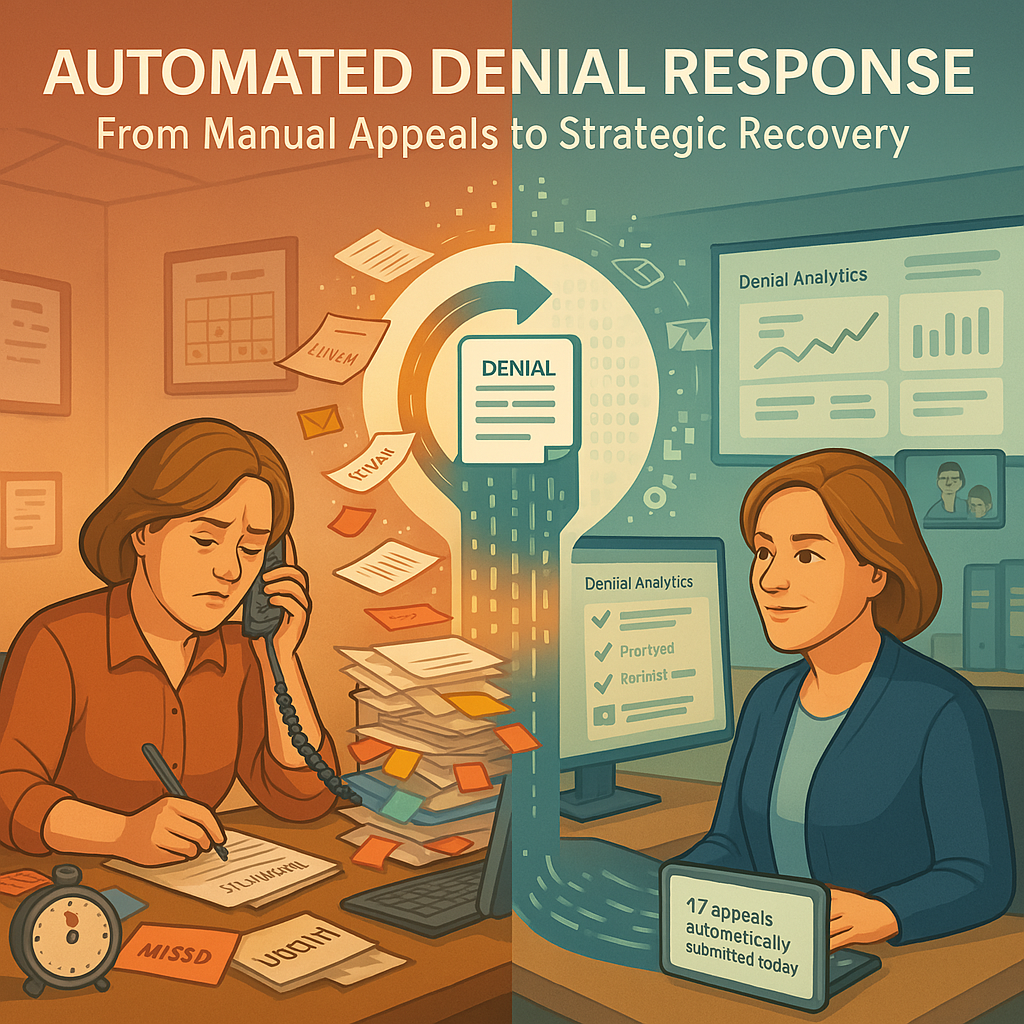Refining Revenue Cycle Management: Bridging Gaps and Enhancing Communication
In today’s healthcare environment, efficient Revenue Cycle Management (RCM) is crucial for financial stability. Outsourcing RCM to specialized teams is a common strategy for streamlining operations. However, this approach brings challenges, especially in communication and bridging operational gaps. This article explores how to work effectively with outsourced teams. The focus is on enhancing communication and closing gaps in RCM.
Understanding Revenue Cycle Management
Revenue Cycle Management involves managing claims, payments, and revenue generation for healthcare services. It includes steps from patient registration to billing and collections. An optimized RCM system ensures timely payments and reduces denials. It also improves the financial performance of healthcare providers.
Key Challenges in Revenue Cycle Management
A primary challenge is maintaining consistent communication between internal and outsourced teams. Regular, structured meetings should occur weekly to address ongoing issues. However, communication often lapses due to reliance on asynchronous methods. Emails with attachments and delayed responses are common culprits.
The Benefits of Outsourcing RCM
Outsourcing RCM offers several benefits:
– Cost Savings: Outsourcing reduces overhead costs related to in-house teams.
– Expertise: Specialized teams bring knowledge and experience to manage RCM more efficiently.
– Scalability: Outsourcing allows scaling operations based on demand without staffing constraints.
– Focus on Core Activities: Outsourcing enables healthcare providers to focus on patient care.
Challenges in Outsourcing RCM
Despite its advantages, outsourcing RCM presents challenges:
– Communication Barriers: Time zones, language, and cultural differences hinder effective communication.
– Lack of Control: Providers may feel a loss of control over the RCM process.
– Integration Issues: Integrating outsourced systems with existing ones can be complex.
– Data Security: Protecting patient data and ensuring compliance is more challenging externally.
Enhancing Communication in Outsourced RCM
Adopting real-time communication tools like Slack or Teams can be transformative. These platforms allow instant dialogue and problem-solving. This helps resolve issues quickly as they arise. Additionally, using modern project management tools can replace outdated practices. Live, actionable data becomes accessible to all stakeholders.
Daily Stand-Ups: A Tactical Approach
Daily stand-up meetings help maintain momentum in RCM processes. These brief sessions enable teams to discuss current priorities. Reviewing previous accomplishments and addressing obstacles is crucial. This routine ensures issues are addressed promptly, minimizing the risk of errors.
Data-Driven Decisions and Problem-Solving in Outsourcing RCM
Proactively analyzing denial patterns and AR metrics is essential. Often, actionable insights are buried within routine data. Revenue cycle directors must go beyond surface statistics. Delving into data can lead to significant improvements in RCM processes.
Recommendations for Revenue Cycle Directors
– Regular Reviews: Keep communication channels open with in-house and outsourced teams.
– Leverage Technology: Use advanced tools to ensure timely and effective communication.
– Data Analysis: Deep dive into RCM data to identify patterns needing attention.
– Engage Frontline Staff: Understand the challenges faced by frontline staff in RCM tasks.
– Strategic Vendor Management: Regularly assess and renegotiate terms with outsourced vendors.
Conclusion
Outsourcing RCM offers significant benefits but requires a strategic approach. Overcoming communication barriers and operational gaps is essential. Clear communication channels, defined roles, and robust training programs are key. Monitoring performance and fostering collaboration optimize RCM processes. Effective collaboration allows healthcare providers to focus on delivering high-quality patient care.










